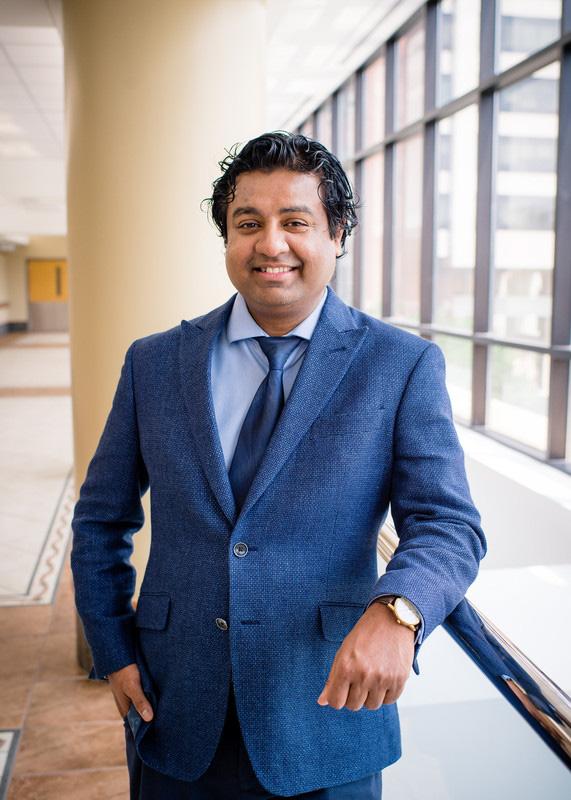A specialized clinic in a tertiary hospital is effective at treating patients from 5 states

Credit: UAB
BIRMINGHAM, Ala. – Despite medical and surgical advances to treat epilepsy, between 15 and 40 percent of patients continue to suffer from seizures. A significant service gap exists to bring new therapies — called neuromodulation — that could help many of these patients.
To fill this gap and improve seizure control for drug-resistant epilepsy, the University of Alabama at Birmingham created an epilepsy neuromodulation clinic. Now Sandipan Pati, M.D., assistant professor in the UAB Department of Neurology, and colleagues report on the outcomes provided by this specialized clinic during 19 months of operation, in a short research article published in Epilepsia Open.
Overall, Pati says, they found improved access for patients, good communication with referring physicians, achievement of expected outcomes for reducing or eliminating seizures, and the ability to train future providers in programming neuromodulation devices. This met their benchmark goals for the clinic of rapid accessibility for patients and referring physicians, despite the challenges of running a special clinic in a busy tertiary academic center like UAB Hospital.
In the study, UAB researchers report on two Food and Drug Administration-approved neuromodulation therapies — vagal nerve stimulation, or VNS, and responsive neurostimulation, or RNS. Both use implantable stimulators that deliver electrical pulses to the brain or to the vagus nerve in the neck.
“There is a significant challenge in integrating these neuromodulation therapies in clinical practice,” Pati said, “including appropriate patient selection, education for informed decision-making, availability of trained physicians to implant the device safely, and programming or troubleshooting the device to optimize therapy.”
The neuromodulation devices need to be adjusted a number of times after implantation, a process called titration, to determine the most effective stimulation for each patient.
For patients receiving VNS at the UAB clinic, 12 out of 27 self?reported a more than 60 percent reduction in seizures at follow-ups, eight months or more after implantation; none were seizure-free. All of the VNS patients were from Alabama, many traveling considerable distances, up to 250 miles.
For the RNS, 11 of 16 patients self?reported a more than 60 percent reduction in seizures, and four were seizure?free. Most of the RNS patients were from Alabama, with many traveling considerable distances. Four were from the states of Arkansas, Mississippi and Florida.
All patients, Pati says, were scheduled in the clinic within two to four weeks, and stimulations were rapidly optimized. About 40 percent of patients participated in research, and 28 percent were referred for additional diagnostic studies. Additionally, 19 students and fellows were trained in programming the neurostimulators.
“Here, we have demonstrated the value of organizing a specialized clinic with a focus on rapid accessibility,” Pati said. “Having a specialized neuromodulation clinic allows efficient management of resources, like scheduling field engineers to attend the clinic and avoiding multiple visits within a week. Also, one important aspect of titrating stimulation is patient tolerability, and the clinic provided rapid access within three weeks to manage stimulation?related side effects.”
Poor seizure control, Pati notes, has been associated with poor quality of life, depression, anxiety and adverse side effects from medications.
###
Co-authors with Pati in the study, “Practice trends and the outcome of neuromodulation therapies in epilepsy: A single-center study,” were Rabia Jamy, Manmeet Kaur, Diana Pizarro and Emilia Toth, UAB Department of Neurology.
Media Contact
Jeff Hansen
[email protected]
Original Source
https:/
Related Journal Article
http://dx.




